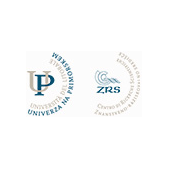The Employability has become a key issue in our society where numerous factors, including the gap between the world of education and the workplace, the decline of the traditional career and the advent of boundaryless career, have replaced the emphasis on the responsibility of the individual to increase its employability to be able to work in contexts more and more complicated and dynamic. Employability does not refer to a training for a specific job but to a path of growth and integral development that a person undertakes in order to acquire the tools to face the working challenges in a winning way. Improving employability is a key area in the sustainable development model of the firms and it aims to support the resources and energies of the people in the interests of conservation and development; in this area the role of HR is essential.
But what are the drivers that may push companies to invest in employability of their employees and how they handle the management paradox relating to employability?
To answer these questions in my master’s degree thesis which was supervised by Dr. Martini of the University of Milano-Bicocca, I have analyzed the innovative Project Employability 2.1, a training program that involves the insertion of young graduates in some major companies such as Sky, Bosch, Lottomatica. This is a very important project to reduce the gap between the world of education and the workplace and it is also an important example of corporate social responsibility. The significant features of the Project are:
- The presence of a work experience implemented by a company rotation mechanism by which each participant works for one year in a company and the following year in the other combined company.In this way people can greatly increase their wealth of experience, experimenting also in different roles.
- The presence of a Learning experience that through boot camp, theoretical and practical training sessions held by the top managers of the companies themselves, aims to increase the employability skills more important in the working world.
I interviewed the promoter of the project, Consortium ELIS of Rome, and HR managers of three participants companies. From the interview it emerges as a fundamental requirement for being considered "employable", the following set of life skills: problem solving, team working, vision, time and uncertain management in order to understand the complexity of the work environment and approach to it proactively.
The tools to implement these skills used by surveyed companies are: job rotation, individual training, e-learning platforms, mentoring and coaching to promote a concept of education in which the worker is an active part, and potential mapping systems and performance essential to develop individual growth plans for each worker. They also promoted a decentralized decision-making process based on focus group through which it is possible to consolidate their interpersonal skills.
One of the main drivers that push these companies to invest in the employability is the competitiveness that leads company to acquire a pool of human resources with soft skills developed that allows to innovate their business processes. Fundamental is also investing on the formation of internal talent to grow the future managers able to carry out the corporate mission. The goal is to create added value ,difficult to imitate by competitors, through the creation of new skills in people that become the focus of corporate strategy.
Among the barriers that companies face in investing in employability there are opportunistic attitudes of workers that after being formed they may decide to go to work for competitors companies, generating a failure return of investment for the company that created them. Companies should support monetary and non-monetary costs and they need to empower the workers so that it can take a proactive attitude towards the educational opportunities that are offered.
The last element that I analyzed in my thesis is related to the Management Paradox managed. The literature of the Management Paradox supports that the developing employability increases levels of performance but also reduces the commitment of the worker in the company, since a more employable person will be more incentive to look for opportunities in the external labor market. To counter this and to increase engagement of workers, interviewed companies have focused on some important internal factors such as proper management of the psychological contract where employability development is a new form of social security for workers no longer linked to the permanent position but in the knowledge that you have the range of skills that makes it attractive and employable in the labor market. It’s important to pay attention during the recruitment phase in recruiting people who share fully the corporate values so they are more inclined to a greater involvement in company.
Companies should develop personalized training path aimed expression of the potential of each worker.
The Companies surveyed have adopted a sustainable development model in which they were able to provide a learning value of job that allowed the development of professional and personal skills. It is important to favoring the creation of a social networking, that provide capital and training facilities for example through interaction with managers and supervisors. Companies have issued a work based learning through formal and informal learning mix, favored decentralized and participatory decision-making process. They acted like learning organization. Investment in employability allowed these companies to remain highly competitive, innovating their processes and increase the commitment of employees.
Relevant themes:
Sustainable innovation
Relevant tags: Social innovation, Sustainability, Sustainable lifestyles
























